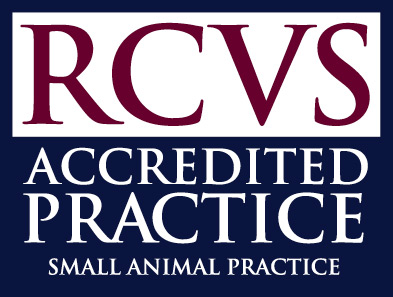Try as I might, I cannot think if a single situation or scenario where fireworks and pets go well together! Bright lights, loud bangs and flashes just don’t seem to be appreciated by anything with a tail. So, while the perfect ending to any bonfire night is a good fireworks display (the more loud bangs and bright flashes the better), it’s not so perfect for many of our pets. Some pets find fireworks incredibly frightening and stressful and what follows is a brief guide on the signs of a firework phobic pet and what you can do to alleviate them. I have focused on dogs and cats, but the principles are the same for all pets.
Some of the signs of firework phobia are obvious while others are more subtle. The obvious signs of fear are hiding, trembling and in severe cases passing urine or faeces. Dogs, especially, tend to bark or howl if they find fireworks stressful. More subtle signs which you may not immediately associate with fireworks are over-grooming and cystitis. These are a common manifestation of stress in cats – signs of cystitis are frequent visits to the litter tray, straining and often voiding little or no urine. Sometimes the urine can appear blood tinged. If there is no litter tray, then often a bath, shower or the quiet corner of a room will be seen as a suitable alternative by your cat! Stressed cats and dogs can develop compulsive over-grooming or licking. Cats often over-groom their belly and groin areas when stressed – the exposed skin often feels a bit rough and is more red in colour. Dogs can develop compulsive behaviours such as lick granulomas which are sore areas of the skin which result from continuous licking at a particular area such as a paw.
Once you have established that your pet isn’t that enamoured with bonfire night and would rather Guy Fawkes had written a stern letter to James I and then gone down to the pub rather than trying to blow up half of London, what can you do to help them?
Desensitisation therapy is the ideal method. This involves playing sound recordings of fireworks to your pet starting at a low volume and building up until they become familiar with the noises and do not find them stressful. Desensitisation takes several weeks and needs to be started well before any fireworks are going to be used. Given that this is a November issue, it is not practical for this season, but is definitely worth considering for the longer term! We have CDs with firework recordings at the practice which we can loan out.
Making a calmer environment during the fireworks themselves is important. Closing curtains and blinds will reduce the effects of flashes and bright lights. Turning on the radio or television will help mask the sounds of fireworks. Being present yourself will also help as you can reassure your pet. If you can’t be around, having a friend’s dog which gets on well with yours and does not fear fireworks can help a phobic dog.
Natural calming medications are very useful in treating fear and anxiety associated with fireworks. They tend to take a few days to have an effect but have the benefit of having no detrimental side effects. This group of treatments consist of pheromone sprays and diffusers which calm pets and reduce anxiety (Feliway for cats and Adaptil for dogs). Plug-in diffusers are very easy to use and will provide an effect over a reasonably large area. Collars are available for dogs. The disadvantage of Feliway and Adaptil are that you cannot always tell how much exposure your pet has had to them. An alternative is a medication called Zylkene which consists of a milk protein which acts on brain receptors, reducing anxiety. Zylkene is a capsule which is given orally, once daily.
Anxiolytic drugs are the final resort if all else fails. Some pets are so terrified by fireworks that none of the above regimes or treatments are successful. In these situations we have to resort to drugs which reduce anxiety and cause varying degrees of sedation depending on the drug and the dosage. In order to dispense these drugs, your pet will need to be examined by a vet to make sure that he or she is in otherwise good health and is a suitable candidate for the medication.
If your pet is getting stressed by fireworks, or you have any queries, please do not hesitate to get in touch with us at the practice and one of our vets or nurses will be able to advise you.



